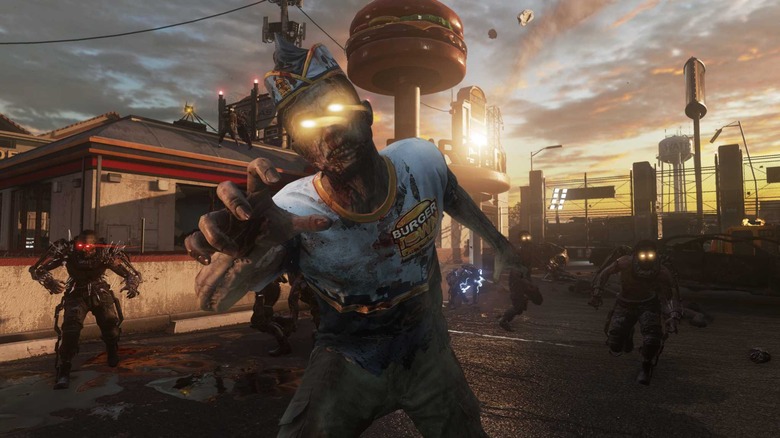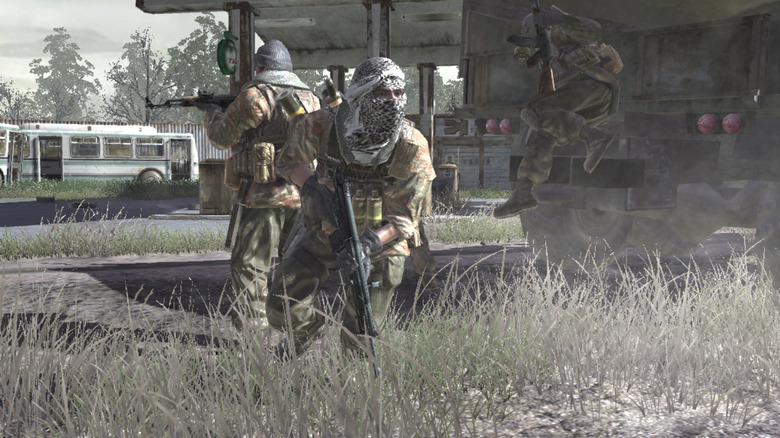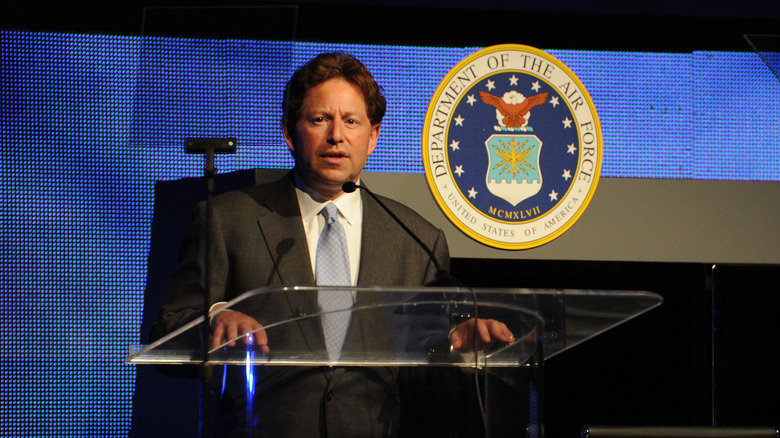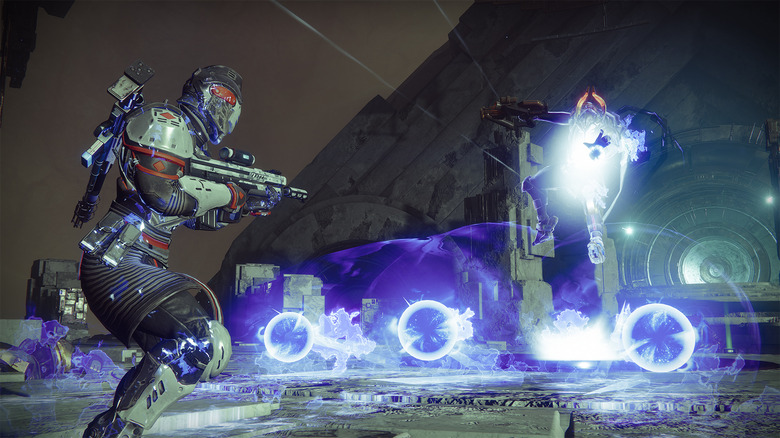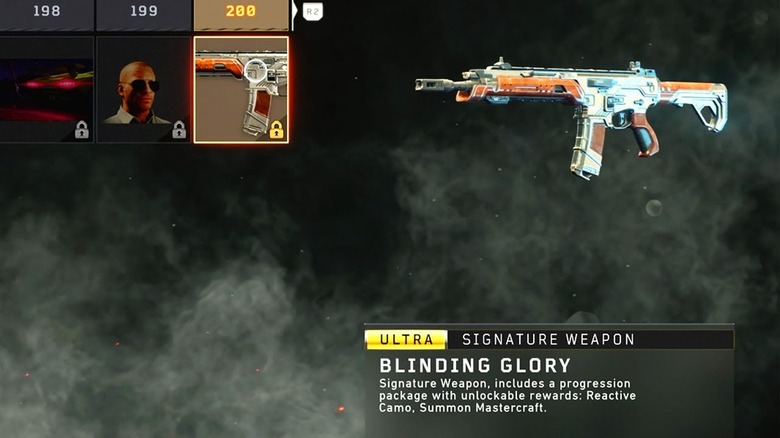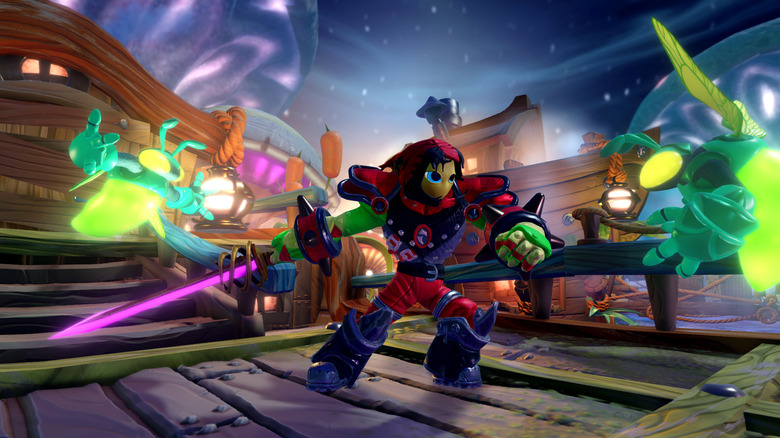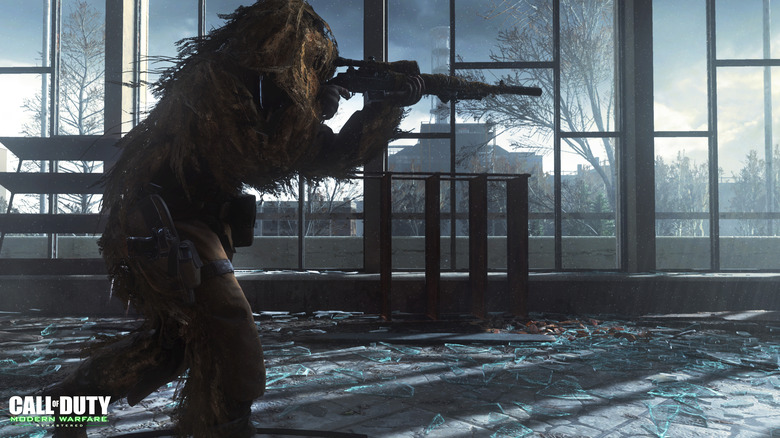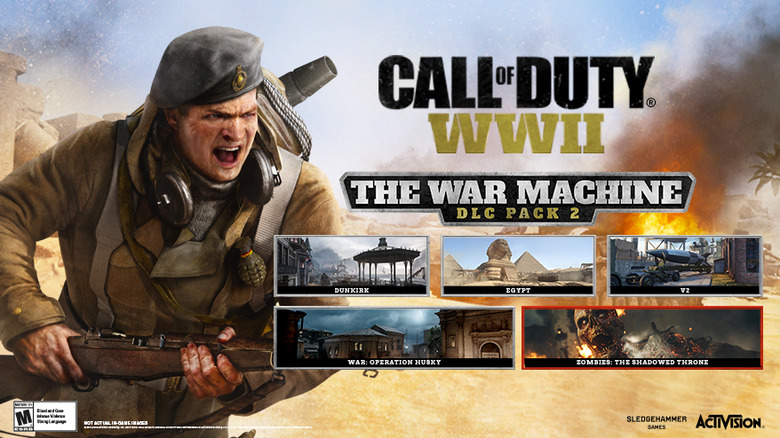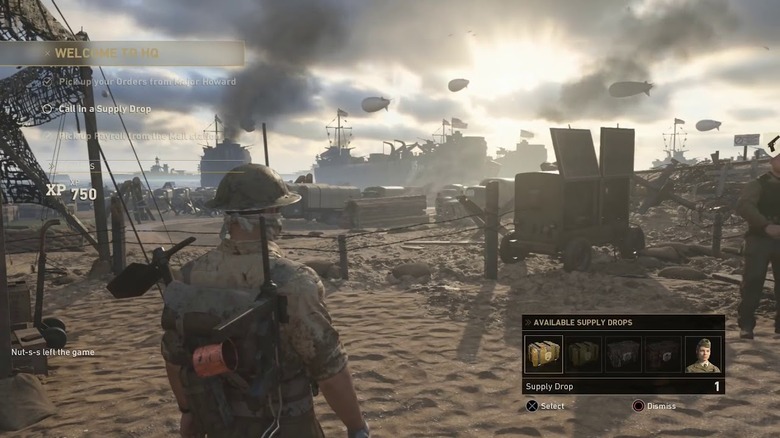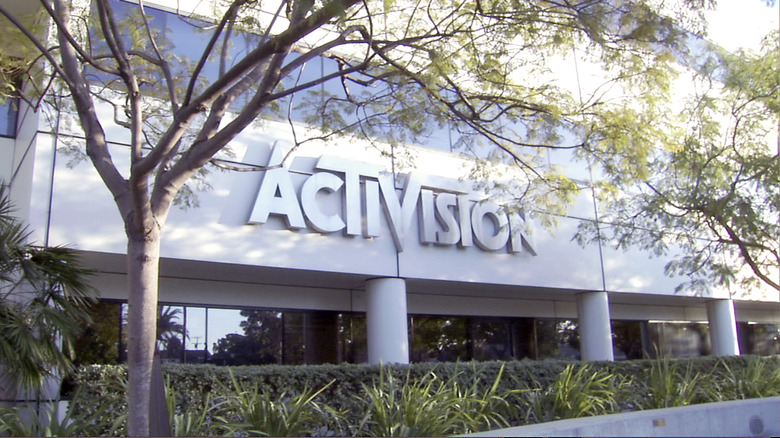The Shady Side Of Activision
When it comes to the most reviled companies in the video game industry, there are usually two names that immediately spring to mind. The first is EA, which won multiple Worst Company awards before pulling back on some of its more anti-consumer practices. And the other is Activision.
Activision wasn't always hated. But in the past decade, the company has quickly become everything gamers feel is wrong with video games.
Below, you'll learn about why Activision has angered these gamers so. You'll get a glimpse into how the company treats its intellectual properties. You'll gain a better understanding of what it does to milk every possible cent out of consumers. And you'll realize that Activision certainly makes a lot of money, but it does so while engaging in all the industry's most despised practices.
Activision is all about pleasing its shareholders. And in order to keep that growth train chugging, the company has had to make some pretty seedy decisions. It's time you learn about them.
This is the shady side of Activision.
Activision's termination of two Infinity Ward employees cost it a lot of money
As a huge company, Activision has engaged in a fair amount of litigation. But no suit harmed its image — and its pocketbook — more than the one it settled with two former Infinity Ward developers. You might recognize the names of Frank Zampella and Jason West as the two founders of Respawn, the studio behind Titanfall. But before that, Zampella and West worked on Call of Duty games at Infinity Ward.
That is, until Activision fired them.
Months before Zampella and West were terminated in 2010, Infinity Ward had launched Call of Duty: Modern Warfare 2. The game was a massive success, grossing $310 million on its first day and even bigger sales after that. Zampella and West were reportedly due to get a huge payday in royalties as a result. But that never happened. A few months after the game's release, the two were pulled into a conference room at Activision HQ, where they were immediately discharged.
Zampella and West filed suit, claiming wrongful termination. And Activision filed a countersuit, accusing the two of purposely trying to get fired in order to start a new studio. But before anyone could meet in court, Activision settled. It paid bonuses due to Infinity Ward employees who'd left for Respawn — something it had been refusing to do. And it paid a pretty hefty amount to Zampella and West themselves, ending a dark chapter in the company's increasingly dark history.
The company famously puts profit over everything else
Bobby Kotick is a name that doesn't engender a lot of love in the video game world. Before becoming the CEO of Activision Blizzard, he was simply the CEO of Activision. But it's safe to say that he harbored a lot of the same beliefs about the game industry then as he does today. His approach is effective — Activision Blizzard makes a lot of money, after all — but it turns a lot of people off. It's almost as though he could care less about the games themselves. Instead, his focus is on the money.
And nowhere is that more evident than in the words he spoke in 2010.
According to Gamespot, Kotick revealed quite a bit about his process while speaking at a tech conference that year. For example, he took pleasure in the fact that his obsession with profit had rubbed off on others, stating, "You have studio heads who five years ago didn't know the difference between a balance sheet and a bed sheet who are now arguing allocations in our CFO's office pretty regularly."
But there's one quote that really sticks out like a sore thumb and speaks to the way Kotick — and now Activision Blizzard — comes at the games business.
"We have a real culture of thrift. The goal that I had in bringing a lot of the packaged goods folks into Activision about ten years ago was to take all the fun out of making video games."
Neat.
The Destiny exclusivity deal is one of the worst in gaming
There were a lot of problems with the original Destiny: The story didn't really make much sense. The grind for high-powered loot was a bit excessive. And Peter Dinklage just was not feeling his role as Ghost. But nothing could hold a candle to the exclusive content deal that Activision struck with Sony.
Most timed content deals last a month or two. In this case, it lasted a year.
Xbox fans were rightly miffed. The content being locked to PlayStation was, as it turned out, pretty substantial. There were PlayStation-exclusive strikes. Exclusive Crucible maps. And even exclusive exotic weapons. And while those showed up after a year, the Taken King expansion of the game introduced a whole bunch of new exclusives that the Xbox platform wasn't getting. And those didn't come until two years later — which, as it so happened, was after Destiny 2 had launched.
Most Destiny fans, regardless of which platform they play on, hate the exclusivity deal between Activision and Sony. But Destiny 2: Forsaken arrived in Sept. 2018, and guess what came with it? More exclusives.
Activision patented a really awful way to encourage microtransactions
Microtransactions aren't looked upon all that kindly by most gamers. Loot boxes are just downright awful in the eyes of many. The bits of content that you can buy directly aren't quite as bad, but most would tell you that they'd prefer that content be rewarded as part of normal gameplay.
Unfortunately, that's not where video games are these days. We're in the midst of the microtransaction era, and it should come as no shock that Activision is neck deep in using them. But the patent they filed? It takes microtransactions to a whole new level.
Back in Oct. 2017, Activision was granted a patent that could make even the most cynical gamer drop his or her jaw. It covered a microtransaction system that, basically, placed players who owned microtransactions into matches favorable to them. The end goal of the system would be to make the player without the microtransaction content feel bad so they'd feel compelled to pull out their credit card and get some of that downloadable loot.
This is undeniably gross. And Activision did its best to distance itself from the patent when it came to light, stating that its R&D department filed it, and there were no plans to use it in-game.
If you believe it won't ever show up, though — we have a DLC bridge to sell you.
Activision routinely runs franchises into the ground ...
Do you know how many Call of Duty games there have been? Think of the mainline games. And then think of the spin-offs that spawned their own sequels. If you sit back and count, there's a very good chance you won't name them all. Because they seem to come out every year like clockwork, tossing a new one onto the pile every 12 months or so.
It's seemed to work out for the Call of Duty franchise. Whatever game happens to come out usually sells pretty well. But not every series Activision has released at such a rapid clip has benefited. The Skylanders franchise burned out after multiple releases — which also featured a whole lot of toys-to-life trinkets used in those games. And the once-popular Tony Hawk series faded from existence after Activision released game after game, never again reaching the glory that one of its earliest titles – Tony Hawk's Pro Skater 2 – was able to achieve. In fact, the team behind that series, Neversoft, also made the Guitar Hero franchise.
And Activision made sure that the instrument-peripheral games kept coming until fans were sick of them.
It's hard to imagine such an affliction won't strike Call of Duty someday. And then what?
... and will wring money out of dormant franchises, too
The funny thing about Activision is that the company is well aware of the intellectual properties it has. It'll pump games out for those properties until the market can't bear any more. And then those games will go away. But when it comes to outside licenses, Activision has no qualms about trying to pocket a few more coins off of them before that money-making opportunity disappears.
And that's how we get complete disasters like Tony Hawk's Pro Skater 5.
According to Vice, there's solid evidence to suggest that Activision was due to lose the Tony Hawk license sometime in 2015. So what did Activision do? It rushed out a poor excuse for a THPS title that same year. Fans who were thirsty for a mainline Tony Hawk game — the first since 2002 — bought it up. And they were roundly disappointed. The reviews backed them up, and when journalists asked whether or not the license had anything to do with how quickly Activision released the game, the company wouldn't comment.
It's worth noting that Activision did the exact same thing with another series it was set to lose the license for: Marvel: Ultimate Alliance. The company rushed some poorly made ports to next-gen consoles, selling them as quickly as they could before the games were delisted.
The company earned scorn for the way it sold Modern Warfare Remastered
Call of Duty 4: Modern Warfare is looked upon fondly by fans of the franchise. It reviewed extremely well, and as game consoles moved into generations with better graphics and more capabilities, it naturally became a game that fans wanted to see remastered. And in what could be seen as a fan-friendly move, Activision actually made it happen!
But of course, Activision is Activision. So the company couldn't just offer up a little fan service without making everyone angry.
Instead, Activision chose to bundle Modern Warfare Remastered with its brand new Call of Duty release, Infinite Warfare. And the company didn't even do it in the $60 retail release of the game. It created an $80 package that players would have to purchase if they wanted access to Modern Warfare Remastered, and stated that the remaster would never be sold without Infinite Warfare.
That was a lie. Activision later sold Modern Warfare Remastered separately. But not after getting summarily raked across the coals by YouTube viewers for the move.
Activision insists on paid DLC multiplayer passes
Most video game developers and publishers understand that a thriving online community can help a game far more than one that eventually dies out. And one of the best ways to keep players connected to a game is to offer post-release multiplayer content for free, so that the entire community is gaming as one, and no one is gated out of certain maps or modes.
But not Activision. The company went years selling DLC map packs that splintered Call of Duty multiplayer communities left and right. And with 2018's Call of Duty: Black Ops 4, the company took things to an even worse place.
Black Ops 4 is the first Call of Duty game to insist on a season pass purchase for future multiplayer content. There are no separate map packs. Just a $50 standalone pass that players can either swallow the cost for — after paying $60 for the multiplayer-only Black Ops 4 — or be left behind.
It's a move that doesn't really benefit gamers in any way. Fewer players will pay that kind of a fee for DLC, which will splinter the community hard. But Activision doesn't care about that. The move benefits Activision, and that's all that matters.
Activision cares about loot boxes more than Normandy
Here's some news that won't shock you at all: Activision really likes microtransactions. It wants to put microtransactions in every game. There is no place where microtransactions are off limits. Even Normandy Beach — a hallowed place where countless soldiers lost their lives trying to liberate France during World War II — isn't safe from microtransactions.
That unbelievable decision led Forbes writer Erik Kain to call the loot boxes "a disrespectful cash grab." And he was right.
But the fact remains: Activision uses microtransactions because they make a lot of money off of them. In early 2018, it was reported that the company's microtransactions pulled in $4 billion the previous year. That is an ungodly sum for any game company, but Activision managed to make it solely from extra game content.
So there's really no motivation for Activision to stop.
The company has a responsibility to its shareholders. It has to make money, and then try to make more money the next year. Activision seems to believe that microtransactions are the best way to grow that bottom line. No matter how low said microtransactions stoop.
The company once got caught trying to fudge its earnings
So about those shareholders. Activision has what is called a "fiduciary duty" to those who own stock in Activision Blizzard. To put it plainly, the company must act in a way that it feels benefits those shareholders. And that means making decisions that can ultimately make an investment in Activision Blizzard a winning proposition.
Companies that sell stocks are regulated by a government agency called the Securities and Exchange Commission, or the SEC. Activision Blizzard must abide by that agency's rules, especially when it comes to reporting earnings. But the company tried to pull a fast one in 2016. And the SEC called Activision out for it.
In essence, Activision tried to use a metric not allowed by the SEC. But the company knew well enough not to use it in actual shareholder reports. Instead, the company emailed journalists and asked them to publish the funny numbers instead.
Sarah McVay, who teaches accounting at the University of Washington, was stunned.
"They do appear to be trying to circumvent the SEC's wishes," she told MarketWatch. "It's quite interesting that they would be willing to do this."
"Interesting" ... and super shady.

